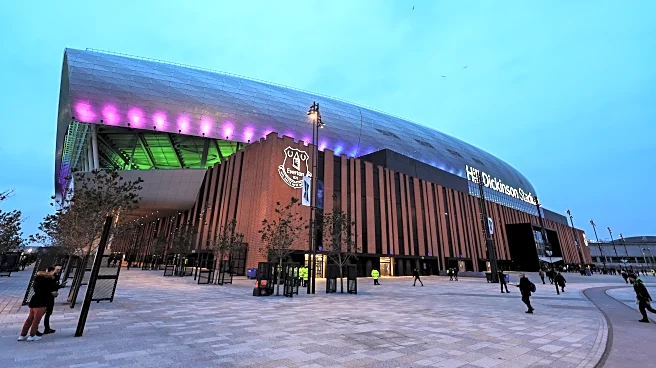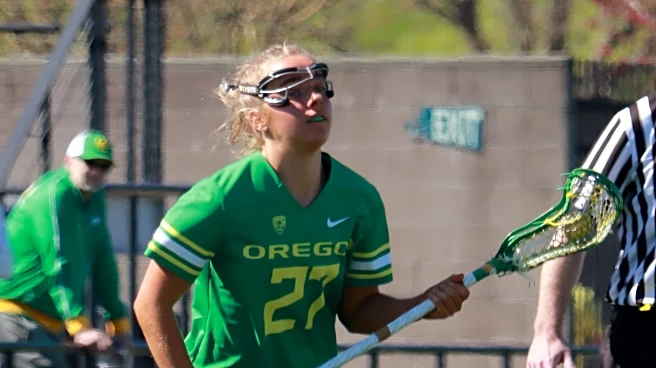What's Happening?
Hauser & Wirth, a prominent art gallery, is facing legal action in the UK for allegedly breaching sanctions against Russia. The gallery is accused of making a work by artist George Condo available to Alexander
Popov, a collector connected with Russia, during a period when the UK had banned the export of luxury goods to Russia. This ban was a response to Russia's invasion of Ukraine. The gallery has stated its intention to plead not guilty, emphasizing its commitment to legal compliance. The case is notable as it marks the first prosecution under the law prohibiting the supply of luxury goods to Russia.
Why It's Important?
The prosecution of Hauser & Wirth highlights the stringent enforcement of international sanctions and their implications for the art market. Galleries and collectors must navigate complex legal landscapes, especially when dealing with high-value artworks. This case underscores the potential risks and legal challenges faced by art institutions in maintaining compliance with international trade laws. The outcome could set a precedent for future cases involving art transactions and sanctions, affecting how galleries operate globally.
What's Next?
The case is scheduled for a pre-trial hearing at Southwark Crown Court on December 16. The legal proceedings will be closely watched by the art community and legal experts, as they may influence future enforcement of sanctions in the art market. Hauser & Wirth's defense and the court's decision could impact the gallery's operations and reputation. Additionally, the case may prompt other galleries to review their compliance strategies to avoid similar legal challenges.
Beyond the Headlines
This case raises broader questions about the intersection of art, politics, and international law. It highlights the ethical considerations galleries must weigh when engaging with collectors from sanctioned countries. The situation also reflects the growing scrutiny on the art market's role in global economic and political dynamics, potentially leading to increased regulatory oversight.












